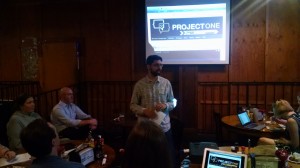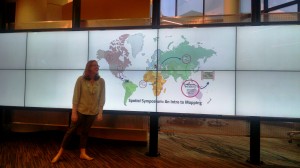As part of the project I’m working on for the Digital Archive of Literacy Narratives, I have been researching free apps for the iPad 2 that might help innovate the current recording process of the DALN.
Let me explain in more detail:
Representatives from the DALN go to conferences, usually rhetoric and composition, or other English studies related conferences, and collect live literacy narratives. I have volunteered for DALN more than once, and usually have a fun time doing it. the task involves roping people in to come and sit in front of a computer (always a mac) and record a short narrative about literacy. It can be anything – reading, writing, digital – whatever. They talk into the recording device, which takes video and audio, and then when they are finished, we save and upload the recordings, along with a release form participants fill out.
As part of the project, I am looking at streamlining this project – innovating it, if you will. So instead of using MacBooks, I am looking at using iPads. So far, I’m sort of stumbling around in the dark, but I have found one fun, if not confusing tool:
Stage: An Interactive Whiteboard and Document Camera – And while this program will not likely work for innovating the DALN recording process, it may be useful for something similar.
The biggest difficulty I find myself having at the moment is the “free apps” part of the task. On iPad, movie maker is $4.99. This is problematic, and may lead to some interesting access-oriented innovations.
In the meantime, if anyone finds some use for this whiteboard app, please share.


